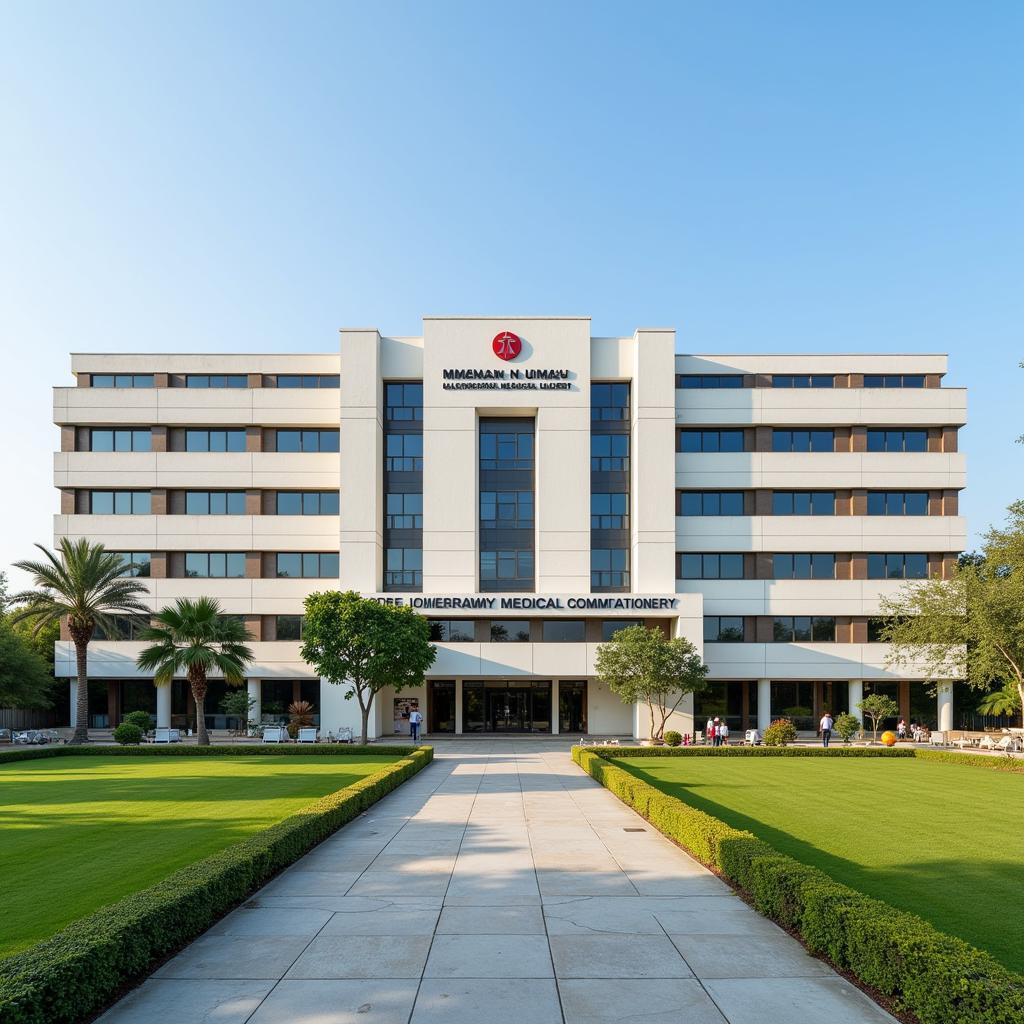Medical Doctor (MD) is a professional degree awarded upon graduation from medical school. In Pakistan, the journey to becoming an MD is rigorous and demanding, requiring years of dedicated study, rigorous training, and a commitment to serving the healthcare needs of the nation.
This comprehensive guide delves into the intricacies of becoming an Md In Pakistan, covering everything from the education pathway to career prospects.
The Path to Becoming an MD in Pakistan
The journey to becoming a licensed medical practitioner in Pakistan follows a structured pathway:
-
Intermediate Education (FSc – Pre-Medical): Aspiring medical students typically complete a two-year higher secondary education with a focus on pre-medical subjects like Biology, Chemistry, and Physics.
-
Medical College Admission Test (MDCAT): Securing admission to a recognized medical college in Pakistan necessitates clearing the highly competitive MDCAT, a standardized test evaluating candidates’ knowledge in science subjects and analytical skills.
-
Medical School (MBBS): The MBBS (Bachelor of Medicine, Bachelor of Surgery) is a five-year undergraduate degree program comprising rigorous academic coursework and clinical rotations.
-
House Job: Following graduation, newly qualified doctors undertake a mandatory one-year house job, rotating through various specialties in a hospital setting to gain practical experience.
-
Medical Licensing Exam: To practice medicine independently, graduates must pass the licensing exam conducted by the Pakistan Medical Commission (PMC).
Choosing the Right Medical College
Pakistan boasts numerous public and private medical colleges offering MBBS programs. Selecting the right institution is crucial and factors to consider include:
-
PMC Recognition: Ensure the college holds accreditation from the Pakistan Medical Commission, a mandatory requirement for practicing medicine in the country.
-
Faculty and Facilities: Research the faculty’s expertise and experience alongside the availability of state-of-the-art facilities including well-equipped labs and teaching hospitals.
-
Clinical Rotations: Comprehensive clinical rotations across diverse specialties are vital for gaining practical exposure, inquire about the hospitals affiliated with the college and the range of specialties offered.
 Modern Medical College in Pakistan
Modern Medical College in Pakistan
Specializations and Career Prospects
After obtaining their MD qualification, doctors in Pakistan have a wide array of specializations to choose from, pursuing further training in fields such as:
- Internal Medicine
- Surgery
- Pediatrics
- Obstetrics and Gynecology
- Cardiology
- Radiology
amd ryzen 5 2600 price in pakistan
Challenges and Rewards of Being an MD in Pakistan
The medical profession in Pakistan comes with its unique set of challenges:
-
Heavy Workload: Long and demanding hours, particularly during residency and in certain specialties, can lead to physician burnout.
-
Resource Constraints: The healthcare system in Pakistan, while improving, still faces resource constraints which can impact patient care and physician satisfaction.
-
Competitive Environment: The field of medicine is highly competitive, securing coveted specialization placements requires exceptional academic performance and dedication.
However, the rewards of being an MD in Pakistan are immeasurable:
-
Making a Difference: The ability to alleviate suffering, improve lives, and make a tangible difference in the community brings immense personal satisfaction.
-
Respect and Recognition: The medical profession commands a high level of respect and recognition within Pakistani society.
-
Intellectual Stimulation: The field of medicine is constantly evolving, requiring lifelong learning and offering continuous intellectual stimulation.
 Doctor Patient Interaction in Pakistan
Doctor Patient Interaction in Pakistan
Conclusion
The path to becoming an MD in Pakistan is undeniably challenging yet immensely rewarding. Those who embark on this journey driven by a passion for medicine and a desire to serve others will find it a fulfilling and impactful career choice.